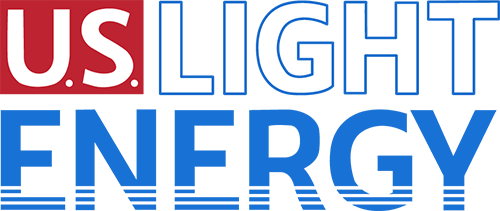
Missouri’s solar energy landscape is shifting in a big way. Once seen as a limited player in the clean energy transition, the Show-Me State is starting to show up with serious momentum. Solar is gaining ground quickly thanks to dropping costs, increased awareness, and a growing demand for affordable local energy. Missouri now ranks 33rd in the nation for solar capacity, with enough solar installed to power over 135,500 homes. In the next five years, Missouri plans on adding another 4,331 MW, ranking 17th in the nation for projected growth.
Missouri lawmakers are responding to public pressure for more accessible solar options. The recent push for a new community solar pilot program could unlock unprecedented opportunities for renters, low-to-moderate-income households, and underserved rural areas. With community solar, homeowners, renters, and businesses can lower utility bills, protect the environment, and support the generation of clean, renewable energy.
What are Missouri Solar Incentives?
Missouri offers a list of solar incentives that make it easier and more affordable for residents, businesses, and entire communities to take advantage of clean energy. These programs aren’t just for people installing solar panels on their roofs. Thanks to community solar projects, people who rent, live in apartments, or simply don’t want to put panels on their homes can still get the benefits of solar power.
Most notably, Missouri is gearing up to launch a three-year community solar pilot program that could dramatically expand solar access across the state. The program would require utilities to make space for community solar projects and give people the choice to subscribe to local solar farms. Subscribers could save money on energy bills without installing equipment or paying upfront costs.
Exploring New Missouri Solar Incentives
Net Metering
Missouri mandates \ for all investor-owned utilities, which allows solar panel owners to earn credit for excess electricity sent back to the grid. These credits offset future electric bills, lowering the cost of solar ownership and speeding up the payback period. While net metering applies mainly to those who install their own systems, community solar subscribers benefit as well, since these savings are baked into the rate structures of the projects they subscribe to.
Federal Solar Tax Credit (ITC)
The federal solar tax credit remains one of the most powerful incentives. It lets homeowners and businesses deduct 30% of the cost of installing a solar system from their federal taxes. However, the One Big Beautiful Bill Act (OBBBA), signed into law on July 4, 2025, requires homeowners to have their systems installed and commissioned by December 31, 2025, to receive the credit.
The commercial solar ITC is still available, allowing community solar projects to receive the full 30% tax credit. However, projects must begin construction by July 4, 2026, to qualify. Once started, the solar projects have four years to complete construction.
Community Solar Savings
Community solar programs allow subscribers to save on their electric bills by purchasing a portion of the energy produced by a local solar farm. Owning a home, installing equipment, or paying anything upfront is unnecessary. Subscribers typically receive guaranteed savings of 10% on their electricity bills, making solar truly accessible to all income levels.
Missouri Solar Incentives – FAQ’s
Is it worth going solar in Missouri?
Yes! Whether you own your property or not, solar offers both financial and environmental value in Missouri. With net metering and tax credits, homeowners who install panels can see a strong return on investment. For renters or those who can’t install solar, community solar programs provide instant savings with zero cost to participate.
How do I claim my solar tax credit in Missouri?
If you install a solar system on your property, you can claim the federal solar tax credit by filing IRS Form 5695 with your federal tax return. While Missouri doesn’t offer a state-level tax credit, residents still benefit from the federal incentive. Community solar participants typically don’t claim the credit directly, but they benefit from the savings passed through by project developers.
Is Missouri a good state for solar power?
Absolutely! $2.4 billion has been invested in Missouri for solar energy development. With the three-year community solar pilot program, more Missourians will be able to access clean, renewable energy through community solar projects without having to invest any money. Participating in community solar with U.S. Light Energy does not involve subscription fees, long-term contracts, or credit checks.
How much does it cost to install solar in Missouri?
Installation costs vary depending on system size, installer, and location, but average around $32,000 before incentives for homeowners who install solar arrays on their property. However, if you participate in a community solar project, it costs nothing—no panels, no equipment, no installation—just a guaranteed 10% savings on your monthly utility bill and a cleaner energy future!
Find Missouri Solar Options with U.S. Light Energy
U.S. Light Energy (USLE) is bringing the benefits of community solar to residents, businesses, and entire communities across Missouri. With no need for rooftop panels, upfront costs, or property ownership, our projects make clean energy more accessible than ever. By subscribing to a local community solar farm, participants can lower their electric bills while supporting renewable energy development in Missouri.
Whether you’re a renter, homeowner, or local business, community solar offers a smart, flexible way to participate in the clean energy economy. Contact us today to learn more about how you can participate in a community solar project in your area! U.S. Light Energy is leading the charge for a new generation.
Resources:
https://uslightenergy.com/development/development-services/
https://seia.org/state-solar-policy/missouri-solar/
https://uslightenergy.com/what-is-a-solar-farm-and-how-does-it-work/
https://renewmo.org/missouri-clean-energy-laws/net-metering-easy-connection-act/
https://www.irs.gov/credits-deductions/how-to-claim-a-residential-clean-energy-tax-credit
